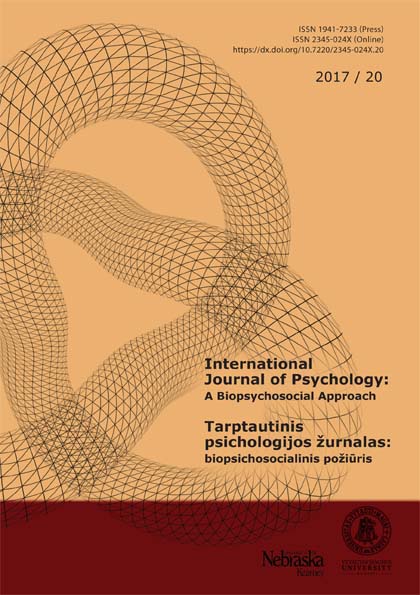The Changes of Self-efficacy and Perceived Social Support of Addicted to Alcohol Women and Men During Treatment Period
The Changes of Self-efficacy and Perceived Social Support of Addicted to Alcohol Women and Men During Treatment Period
Author(s): Milda Cibulskytė, Loreta Zajančkauskaitė-StaskevičienėSubject(s): Psychology, Substance abuse and addiction
Published by: Vytauto Didžiojo Universitetas
Keywords: Overall self-efficacy; Specific self-efficacy; Drinking refusal self-efficacy; Perceived social support; Alcohol-addicted persons;
Summary/Abstract: Background. In order to develop an effective alcohol and other psychoactive substance use prevention programs and improving addiction treatment methods, it is useful to determine the evolution of specific psychological factors of addiction disease during treatment. The aim of the research is to determine the changes in self-efficacy and perceived social support of alcohol-addicted men and women during the treatment. Method. The study included 101 alcohol-addicted persons, receiving treatment at Kaunas County Centre for Addictive Disorders (KCCAD) according to the Minnesota 12-step program. The study used M. Chesney Coping self-efficacy scale, R. M. Young, T. P. S. Oei & P. A. Hasking Drinking Refusal Self Efficacy Questionnaire – revised, G. D. Zimet, N. W. Dahlem, S. G. Zimet & G. K. Farley Multidimensional Scale of Perceived Social Support, C. M. Hart, T. D. Ritchie, E. G. Hepper & J. E. Gebauer The Balanced Inventory of Desirable Responding Short Form. Results. The overall self-efficacy, drinking refusal self-efficacy and perceived social support of alcohol-addicted men and women at the end of treatment was higher than at the start of treatment. Changes in the overall self-efficacy, drinking refusal self-efficacy and perceived social support do not differ in alcohol-addicted men and women in the course of treatment. The results showed that there is a link between the overall self-efficacy, drinking refusal self-efficacy and perceived social support in alcohol-addicted women and men both at the start and at the end of treatment, when the participants age ranges from 40 to 59 years. A link has also been found between the overall self-efficacy and perceived social support after the treatment among the participants aged from 18 to 39 years. The Linear regression model showed that a change in drinking refusal self-efficacy in women can be predicted in regard to their perceived social support change, drinking refusal self-efficacy before treatment and perceived social support before treatment. A change in drinking refusal self-efficacy in men can be predicted with regard to their drinking refusal self-efficacy before treatment and the change in the overall self-efficacy.
Journal: Tarptautinis psichologijos žurnalas: biopsichosocialinis požiūris
- Issue Year: 2017
- Issue No: 20
- Page Range: 23-40
- Page Count: 18
- Language: English

